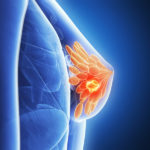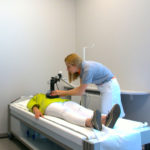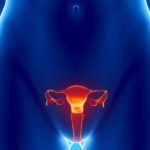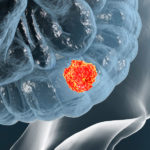 Wróć do poprzedniej strony
Wróć do poprzedniej strony
Stomach cancer – causes, symptoms, treatment
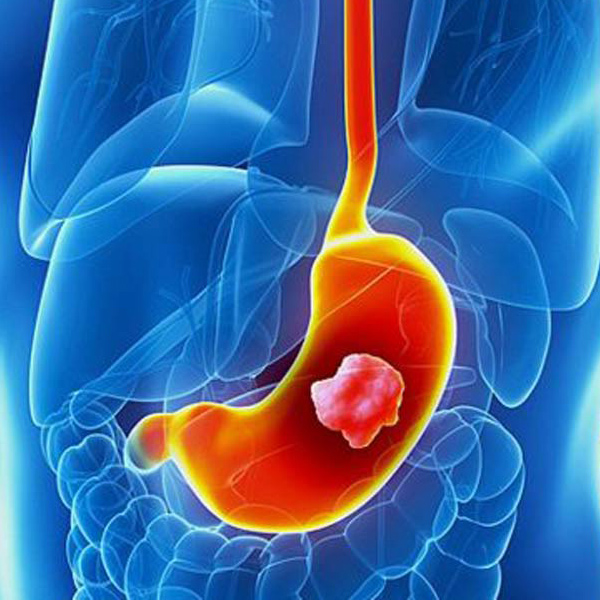
The most common stomach cancer is adenocarcinoma, which arises from cells of the stomach’s inner layer. Adenocarcinoma is characterized by the initial infiltration of the stomach wall, followed by the infiltration of adjacent organs (pancreas and spleen) and lymph nodes.
In addition, this cancer is prone to metastasize through both blood and lymphatic routes, the most common metastatic foci being in the liver, bones, and lungs.
Stomach cancer -how to treat it?
Integrative Oncology Care
At IMC, you will benefit from Integrative Oncology Care designed to speed up physical and emotional recovery, improve quality of life, better tolerate treatment-related side effects and prevent relapse.
An integrative program for cancer treatment can be applied to start from the initial to the advanced stages of cancer, even during the phases when conventional medicine has nothing more to offer. The first step of the integrative approach is a precise and detailed assessment of the patient’s physical, emotional, and body state. The doctor collects the results of biochemical tests, molecular tests, clinical examinations, information about other illnesses, lifestyle, diet, and emotional state. Since the patient’s biological state changes during therapy, the treatment program is updated according to the laboratory and clinical tests. Every aspect of the treatment program is personalized to suit each patient’s individual needs.
Treatment includes:
- integrative medical consultation and monitoring,
- ten sessions of local hyperthermia,
- ozone therapy (autochem transfusions),
- intravenous vitamin infusions,
- ultrasound,
- laboratory tests,
- psychotherapy,
- group workshops such as mindfulness, breathing,
- personalized nutrition,
- and accommodation.
Contact us:
1. Call us: +48 730 597 597
2. Send application form
- Go to Natural cancer treatment
- At the bottom of the page, select your disease
- Complete the form and we will contact you
Depending on the stage and condition of the patient, the most effective treatment method is selected. The goal of surgical treatment is the complete excision of cancer along with a margin of healthy stomach tissue.
The following forms of treatment are used:
- Excision of early-stage cancer from the stomach wall – cancers that do not infiltrate the deeper layers of the stomach can be removed using endoscopic methods during a procedure called endoscopic mucosal removal.
- Excision of part of the stomach (subtotal gastrectomy) – In this operation, only the part attacked by cancer is excised.
- Excision of the entire stomach (total gastrectomy) – This procedure requires the removal of cancer along with the whole stomach; in certain cases, some surrounding tissues are also removed. Consequently, it is necessary to connect the esophagus to the duodenum to preserve the continuity of the gastrointestinal tract.
- Exploratory lymph node resection – the surgeon resects some lymph nodes in the abdominal cavity to check for cancer cells.
- Life-enhancing surgery – excision of the part with the tumor can significantly alleviate the discomfort and symptoms associated with tumor growth in the abdominal cavity. Used as palliative treatment for people with advanced gastric cancer.
Radiation therapy
Radiation therapy in treating gastric cancer may be used before surgery ( neoadjuvant radiation therapy) to reduce the tumor mass, facilitating its subsequent excision. Adjuvant radiotherapy, on the other hand, performed after surgery, allows the remaining tumor cells after surgery to be killed.
Chemotherapy
Chemotherapy in the treatment of gastric cancer also takes the form of neoadjuvant and adjuvant chemotherapy, and the principles of its use are the same as those for radiation therapy. Chemotherapy is often combined with radiotherapy, while the indication for chemotherapy as the only treatment is to improve the quality of life of patients with advanced, incurable gastric cancer.
Targeted therapy
Targeted therapy is a modern treatment method during which drugs are used to attack specific functions of cancer cells. Medications used for gastric cancer include:
- Trastuzumab (Herceptin) is a drug applicable to gastric cancers that produce human epidermal growth factor receptor 2 (HER 2)
- Imatinib (Gleevec) is given for tumors of the lining of the gastrointestinal tract (GIST)
- Sunitinib (Sutent) is also administered for gastrointestinal lining tumors.
Stomach cancer - what symptoms?
Stomach cancer shows symptoms such as:
- Weakness
- Flatulence
- A feeling of fullness in the stomach
- Severe heartburn, burning sensation in the epigastrium
- Chronic, unrelenting indigestion
- Nausea with no apparent cause
- Abdominal pain
- Persistent vomiting
Stomach cancer - what causes, risk factors
There is no clear opinion among doctors as to what causes stomach cancer. There is a strong link between a diet rich in smoked, salty, or pickled foods and the incidence of stomach cancer. However, the spread of freezing as a way of storing food has contributed to this type of cancer decline.
Stomach cancer – risk factors
Gastric cancer remains the second most common cause of cancer-related death worldwide, with exceptionally high incidences in Japan, China, Korea, Eastern Europe, and Latin America. Known risk factors for gastric cancer include:
- Low socioeconomic status
- Male gender
- Smoking
- Older age
- Co-occurrence of pernicious anemia (a chronic disease caused by the body’s loss of function to absorb vitamin B12)
- A diet poor in fresh fruits and vegetables, while rich in salty, smoked meat and poorly stored foods.
- Surgical treatment of gastric ulcers by removing part of the organ, is associated with an increased risk of cancer in the segment of the organ left behind, especially within 15 years of surgery
- Recent studies have shown a higher incidence of gastric cancer among those carrying Helicobacter pylori (the cause of chronic gastritis and ulcers)
- Family history of gastric cancer
- Blood group A
Stomach cancer - types of cancer
Depending on the type of cells that make up the tumor, we distinguish between different kinds of stomach cancer. Based on this distinction, the most effective treatment is selected for the type of cancer cells.
There are the following types of stomach cancer:
- Adenocarcinoma (arising from epithelial cells). Epithelial cells line the inner surface of the stomach and produce a protective layer of mucus that shields the organ’s membrane from gastric juice. Adenocarcinoma is the most common type of stomach cancer.
- Lymphoma (arising from cells of the immune system). Cells in the stomach wall perform a defensive function, and gastric cancer can also occur from these cells, but these cases are rare.
- Carcinoma (arising from hormone-producing cells). Cells responsible for the secretion of hormones can also give rise to the formation of cancer. The occurrence of carcinoma is rare.
- Cancers originate from nerve cells. GISTs (tumors of the lining of the gastrointestinal tract) originate from specific nervous system cells. This type of cancer is also rare.
Stomach cancer - diagnosis, how to detect?
Several methods are used to diagnose and classify stomach cancer. To analyze the disease is to confirm its existence, while the classification aims to determine the cancer stage and help choose the right treatment therapy.
Gastric cancer – methods of diagnosis:
- Endoscopic examination – by inserting a thin tube with a camera at its end into the patient’s stomach, the doctor can visualize the cancerous lesion and take sections from it (biopsy) to definitively confirm the diagnosis.
- Once a preliminary diagnosis is made, the patient is subjected to further tests, which include:
- Endoscopic ultrasonography
- Positron emission tomography (PET) and computed tomography of the chest, abdomen and pelvis allow detection of cancer even in its early stages.
- Diagnostic tests that determine the presence of gastric cancer-specific gene mutations.
Gastric cancer – stages
There are the following stages of gastric cancer:
- Grade I: Stage I cancer is confined to the gastric mucosa, which lines the inner surface of the organ; in addition, it may infiltrate a certain number of lymph nodes
- Grade II: Cancer grows deeper – into the muscular layer of the stomach. As a rule, it enters more lymph nodes than in stage I.
- Grade III: There is penetration through all the walls of the stomach. Another case of phase III is a smaller tumor that infiltrates a large number of lymph nodes.
- Stage IV: Cancer gives metastasis to distant tissues and organs.
Contact information
55-010 Żerniki Wrocławskie
Working hours
Have a question?
Use the quick contact form!
Contact information
55-010 Żerniki Wrocławskie
